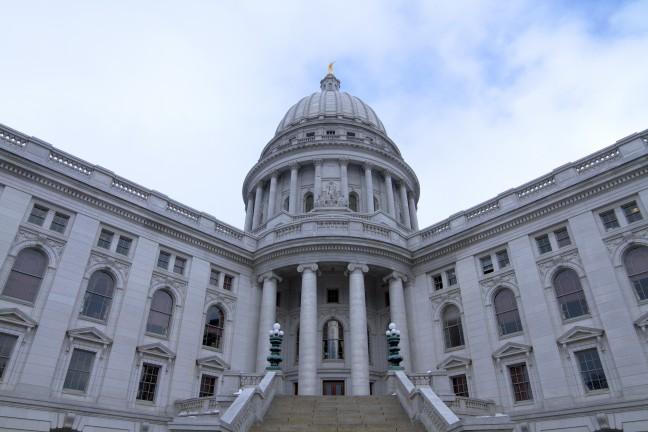The co-chair of the state’s budget committee is out with a new plan that would scrap Gov. Scott Walker’s proposed public authority for the University of Wisconsin System.
The plan from Rep. John Nygren, the Joint Finance Committee co-chair, and Rep. Dean Knudson, R-Hudson, would still grant more autonomy to the system — and it would seek to reduce the proposed $300 million in cuts.
Nygren and Knudson released the new plan on Wednesday. Both are members of the state Legislature’s Joint Finance Committee, which is tweaking Walker’s biennial budget proposals and will present its plan to the full Legislature in the coming weeks.
The plan calls for a “smaller, more manageable cut” to the university system, the deletion of the public authority language from Walker’s proposal, an increase in tuition for out-of-state and graduate students and a legislative requirement that UW campuses spend down accumulated surpluses.
“We appreciate the leadership of Representatives Knudson and Nygren and other legislators committed to reducing the proposed budget cut,” UW System President Ray Cross said in a statement. “We look forward to continuing the discussion on the best way to transform the UW System for the future.”
Walker’s proposal to turn the UW System into a public authority, which would have more freedom than most state agencies, has come under fire from the Board of Regents, students and faculty.
Nygren said this week that the public authority part of Walker’s proposal “might be on life support.”
Democrats, as well as some Republicans — who control both chambers of the Legislature — have raised concerns over the size of Walker’s proposed $300 million cut.
Rep. David Murphy, R-Greenville, who chairs the Assembly’s higher education committee, said he’s sought fewer cuts for UW since Walker’s proposal came out.
“I’ve felt from the beginning that we probably have the ability to mitigate those cuts to a certain extent,” Murphy said.
Mike Mikalsen, a spokesperson for Sen. Steve Nass, R-Whitewater, a longtime critic of the UW System, agrees lawmakers should reduce the cuts if possible.
Knudson and Nygren also said their new plan for the UW System would retain the current legislative control over the Board of Regents.
“While some additional flexibilities may be warranted, the university system is not ready to become a public authority,” the statement said.
Knudson and Nygren’s last suggestion in the plan said the legislature should “require the university system to further spend down its accumulated surpluses,” referring to monetary reserves each campus maintains for emergency purposes.
Those reserves got the UW System in trouble in 2013 at the Capitol, when Republican lawmakers discovered more than $1 billion in 2013.
Mikalsen said the UW System has said they would use what they could to offset cuts and that Nass is waiting for details on how this portion of the plan will be implemented before supporting it.
Murphy said there may be places where there is room to spend down reserves, although maintaining a certain level of reserve is fiscally responsible. Campuses need money behind them to meet obligations when necessary, Murphy said.
“Now there are definitely some areas where spending down reserves could help, but the flexibility across the system is not the same,” Murphy said. “And that’s what makes it tough.”














